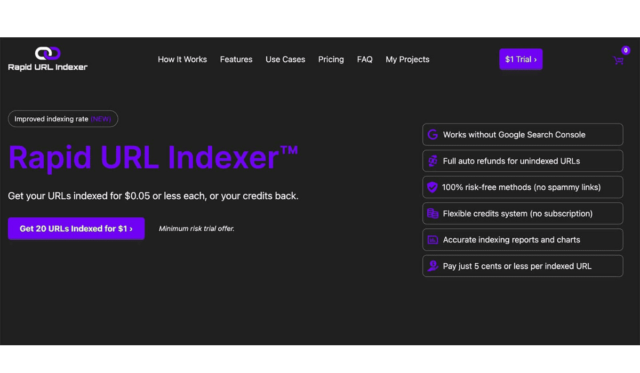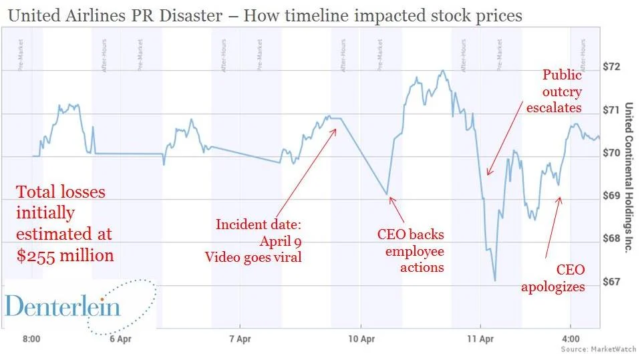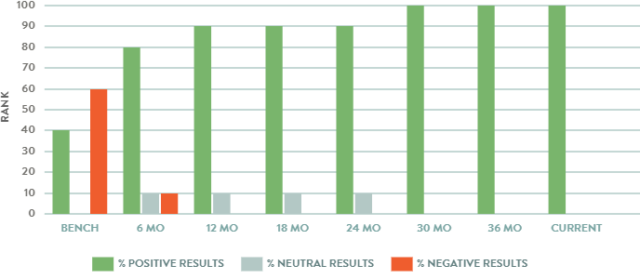Introduction:
When you enter a room of strangers, what do they notice right away? They neither notice your LinkedIn profile nor your favourite piece of clothing. It is your Google Search Result, i.e., your online reputation!
Your online reputation enters the room before you do, regardless of whether you are a CEO, a start-up, a small business, a brand, or a freelancer. However, you are already damaged if your reputation is wearing negative news, bad reviews, or irrelevant links.
This blog delves deeply into a game-changing combination of Online Reputation Management, i.e., ORM, with Rapid URL Indexer, a secret tool that you have most likely not utilised. You can think of this tool as a caffeine shot that your content needs to get noticed, ranked, and above all, get reputed.
Let us explore the why, the how, and the what is next, as well as some real-world stories.
Online Reputation Management (ORM) and Rapid URL Indexer
A BrightLocal study found that 72% of customers trust online reviews as much as they trust personal recommendations, and 91% of consumers read reviews before actually purchasing anything online. (Source: https://www.brightlocal.com/research/local-consumer-review-survey/) However, sales and trust in your brand may decline because of a bad online reputation.
When it comes to online reputation, countries like the USA and the UK should understand that their online search engine rankings are as important as their reviews.
Online reputation management addresses negative reviews, boosts content, and displays the best information in the highest ranking on the search engine. Its significance is that the consumers tend to trust the brand because of credibility, trust, and some positive online reviews.

Rapid URL Indexer is basically a type of tool to speed up the process of receiving web pages published or indexed by the search engines. The tool guarantees that a brand’s positive content is rapidly identified and highlighted in the search results. Furthermore, it also pushes down out-of-date and negative information or content.

Why Should One Combine ORM with Rapid URL Indexer?
Combining ORM with Rapid URL Indexer can provide businesses the ability to handle their reputation issues timely manner as well as in a strategic manner. It can assist businesses in the following ways:
- Timely Crisis Management:
Your audience is continuously looking for information in a state of crisis. In such cases, having up-to-date, accurate, and positive information indexed on time will help you stay in control of your storyline.
- Instant Control on Search Results
Time is of the essence when your business is facing negative reviews or feedback, which ultimately damages your online reputation. Such content should be instantly indexed and published to reduce any negative impact on your business.
Rapid URL Indexer will help you to:
Quickly publish press releases, positive responses, and articles in order to reduce the disparagement.
- Local Reputation Boost
Online reputation involves directory listings and reviews for start-ups and small businesses. Rapid URL Indexer assists such businesses with speedy indexing and updating the listings to make them appear in online local searches.
- Improved SEO Performance
Online reputation management is SEO-dependent as it guarantees that high-quality content will rank higher than low-quality content.
However, with ORM with Rapid URL Indexer, search engines tend to instantly index SEO-optimised pages. This results in outwitting the competition when it comes to manipulating the search results.
Some key differences between ORM and SEO are mentioned in the image below to better understand the context:

Illustration:
Case Study of Domino’s Pizza and ORM Masterclass – Year: 2009
In 2009, a few workers of Domino’s Pizza recorded themselves as they tampered with the food and uploaded the video on YouTube. Due to this action, the brand suffered great reputation damage as well as business loss as the video soared up on the Google search results.
How did they solve this crisis? They utilised ORM with Rapid URL Indexer strategy as discussed below.
Domino’s Pizza responded within 48 hours of the video upload, utilising a comprehensive online reputation management strategy as follows –
- An Apology Video:
To address the crisis, the CEO of Domino’s posted an apology video for his workers’ actions.
- Media Appearances
To show transparency and accountability of their brand, Domino’s took part in media interviews.
- SEO Blog Posts
Domino’s published several blog posts focusing on internal resolution of the viral issue as well as the measures they updated that guarantee food safety.
- Keyword Optimisation and Content Specialisation
To gradually outshine the video, Domino’s focused on SEO and adapted content and press releases.
Furthermore, to suppress the bad feedback and negativity about their brand, Domino’s utilised Rapid URL Indexer to push down negative reviews and comments. They were able to completely shift the narrative towards them as they rapidly indexed new pages with positive content across various platforms.
Results:
The brand was able to restore its reputation with the help of ORM with Rapid URL Indexer strategy. They progressively replaced the workers’ viral video with positive and fresh content on many search engine platforms.
(Sources: Domino’s YouTube Channel, Public Relations Society of America or PRSA, Business Insider)

5 Steps for Implementing ORM with Rapid URL Indexer
- Determine the Main Content
Pay attention to the pages that will influence your reputation for the brand. For instance, any company announcements or controversy or negative criticism posts about your brand.
- Send URLS for Indexing
Use Rapid URL Indexer to send such URLS of any recently published or updated content to help it instantly index them. For example, blog posts, web pages, press releases, or social media network accounts.
- Track the Results
Use various tools such as Google Search Console to keep tabs on the page’s indexed status. For this, you can adapt your online reputation management strategy to the changing search results.
- Update Content Regularly
To ensure that your brand has a robust internet presence, consistently create and publish fresh content as well as index it with the help of Rapid URL Indexer.
- Repeat
Follow the above steps repeatedly, as content needs constant modifications to have an online presence. However, to keep an eye on your brand’s reputation, repeat the process by utilising Rapid URL Indexer.
The following real-world case studies will help you to better understand why ORM with Rapid URL Indexer can be a requirement for your brand, as well as it will assist you in understanding the importance of following the above steps.
Case Studies
- The Guitar incident on United Airlines and its Reputation Fallout (Year: 2009)
In 2009, on a United aircraft, musician Dave Carroll’s guitar was unexpectedly broken by the baggage handlers. As he did not receive a prompt response or compensation for over a year from the aircraft, he went to social media and posted a song, “United Breaks Guitar” on YouTube.
This social media upload’s viral success resulted in the United Airlines’ 10% stock decline and a severe brand embarrassment.
ORM Approach:
There was no quick crisis response or online reputation management plan at United Airlines.
The internet had ample time to shape their narrative due to their late response and apology, as well as their slow release of brand-positive information.
Lesson to Learn:
This incident can be termed as an iconic illustration of why rapid indexing of content is necessary. A quicker response through ORM and/or Rapid URL Indexer, for instance, with the help of press releases, social media SEO, or interviews, could have helped United Airlines from such a reputation loss, ultimately lessening the impact.

(Sources: Forbes, Time Magazine, and Carroll’s own blog.)
- Nestle’s ORM Strategy for Social Media Backlash (Year: 2010-2012)
Following the release of a critical video from Greenpeace, which gained viral success, the Nestle brand received an international backlash for using palm oil. The brand’s search results were filled with negative criticism and activist content, as the internet sentiment was predominantly negative.
ORM Approach:
Nestle worked with environmental watchdogs, published new content and press releases, and released a few sustainability reports.
To counter the negative viral reaction with new and uplifting positive content.
Furthermore, they also focused on SEO optimised content and marketing strategies.
Relation to Quick Indexing:
Nestle used Rapid URL Indexer to quickly index the brand-positive pages with the help of media partnerships and timely content distribution. This strategy gradually altered the brand’s SERP narrative.
(Sources: Wired UK, The Guardian, and https://www.bu.edu/goglobal/a/presentations/greenpeace_nestle_socialmedia.pdf)
11 Tools for ORM with Rapid URL Indexer
- ReputationManagement.com
It offers such resources that help the brand to enhance its online visibility. Rapid URL Indexer is an important feature in this tool, which helps in pushing the positive content to rank high in the search results and reduces the negative feedback and reviews.
- Google Alerts
A free and easy-to-use tool alerts you when your brand is mentioned online. Whenever someone mentions you, you can receive notifications if you have set up alerts for the relevant keywords you may wish to get notified about.
- Brand Yourself
It is one of the most effective ORM platforms as it helps both businesses and individuals to protect as well as build their online visibility. It also ensures that your fresh and positive content is instantly indexed when it is used with Rapid URL Indexer.
- Google My Business
Properly maintaining this tool can be a game-changer. It not only helps you in growing your business profile but also enhances your trustworthiness with the help of location details, regular updates, as well as reviews.
- Social Search
It is a useful tool for sentiments and monitoring the social media presence, as well as the overall presence. When this tool is used with Rapid URL Indexer, positive changes or developments get highlighted on Google search engines.
- Hootsuite
It is a great tool for managing social media profiles. It makes planning content and tracking engagement simple. One can also manage brand promotions on other social media platforms. When this tool is used with Rapid URL Indexer, you can increase your positive messaging.
- Reputology
It is a review management specialising tool which helps in monitoring the reviews on Google, Facebook, and other websites. For brands which depend on local customers, this tool is an ideal resource.
- ReviewTrackers
It is similar to Reputology. As it compiles all the reviews from various platforms in a single dashboard, tracking and responding to customer feedback becomes easy.
- Brand24
It is an effective tool for social listening in real time. It helps you promptly address any negative remarks by monitoring mentions on forums, blogs, news websites, and social media sites.
- Yext
It helps in maintaining your web listings as it ensures that your address, name, and other details are constantly accurate. You can gain the trust of both the search engines as well as your customers by maintaining this consistency.
- Buzzsumo
It helps you develop your brand’s reputation strategy as it helps you find reputed, influential people and discover the popular content in your industry.
Illustration:
Financial Services CEO Survives Viral News Cycle Background
A major news agency published a false report of an executive having a high-ranking position at the multibillion-dollar financial services firm, causing a reputational crisis for the executive.
Problem:
This false claim quickly took over the internet and the search engine results, leading to serious reputational damage.
ORM Strategy:
To combat the negative viral news cycle, ReputationManagement.com assisted the executive and produced and promoted positive content, including reputable articles and press releases. The tool then pushed the positive content to rank high in the search results and reduced the negative feedback and reviews.
Result:
The executive’s online reputation was restored as the top 10 Google search results gradually changed, with the positive content taking over the false reports and claims.

(Source: https://www.reputationmanagement.com/case-studies/?utm)
Rapid URL Indexer Reviews
The following are some companies that have published their reviews of using Rapid URL Indexer:
According to Medium, Rapid URL Indexer is made to speed up the procedure to receive such web pages which are indexed by the search engines, especially by Google. This technology is highlighted for its affordability, ease of use, and effectiveness in increasing the online presence.
(Source: https://medium.com/%40dolsno86/rapid-url-indexer-review-the-ultimate-google-indexing-tool-for-2024-865f76a01903?utm)
Yahoo confirms that despite the shifts in search engine algorithms, Rapid URL Indexer has been acknowledged for its consistent performance. The integrity and ranking of users’ websites are guaranteed by the tool’s dedication to employing secure and efficient indexing techniques.
(Source: https://finance.yahoo.com/news/rapid-url-indexer-debuts-indexing-155500754.html?utm)
Conclusion:
Your search result is not just information in today’s world – it’s credibility, conversion, and reputation all combined in a single click.
A brand doesn’t make its reputation once and then forget about it. Every press release, blog post, comment, tweet, and review related to your brand or name acts as your online reputation.
With an approach towards ORM with Rapid URL Indexer:
- The days of waiting for the search engines to find you maybe find your content are over.
- You are narrating your story in real time, according to your own conditions.
- You’re transforming SEO into a safeguard for your reputation.
Through studying the case studies of Nestle, Domino’s, and United Airlines, brands can implement proactive ORM practices to stop reputational harm from getting worse.
To manage their reputation in times of crisis and to guarantee customer loyalty and brand stability, businesses in the US and the UK need to make investments in ORM strategies and tools.




